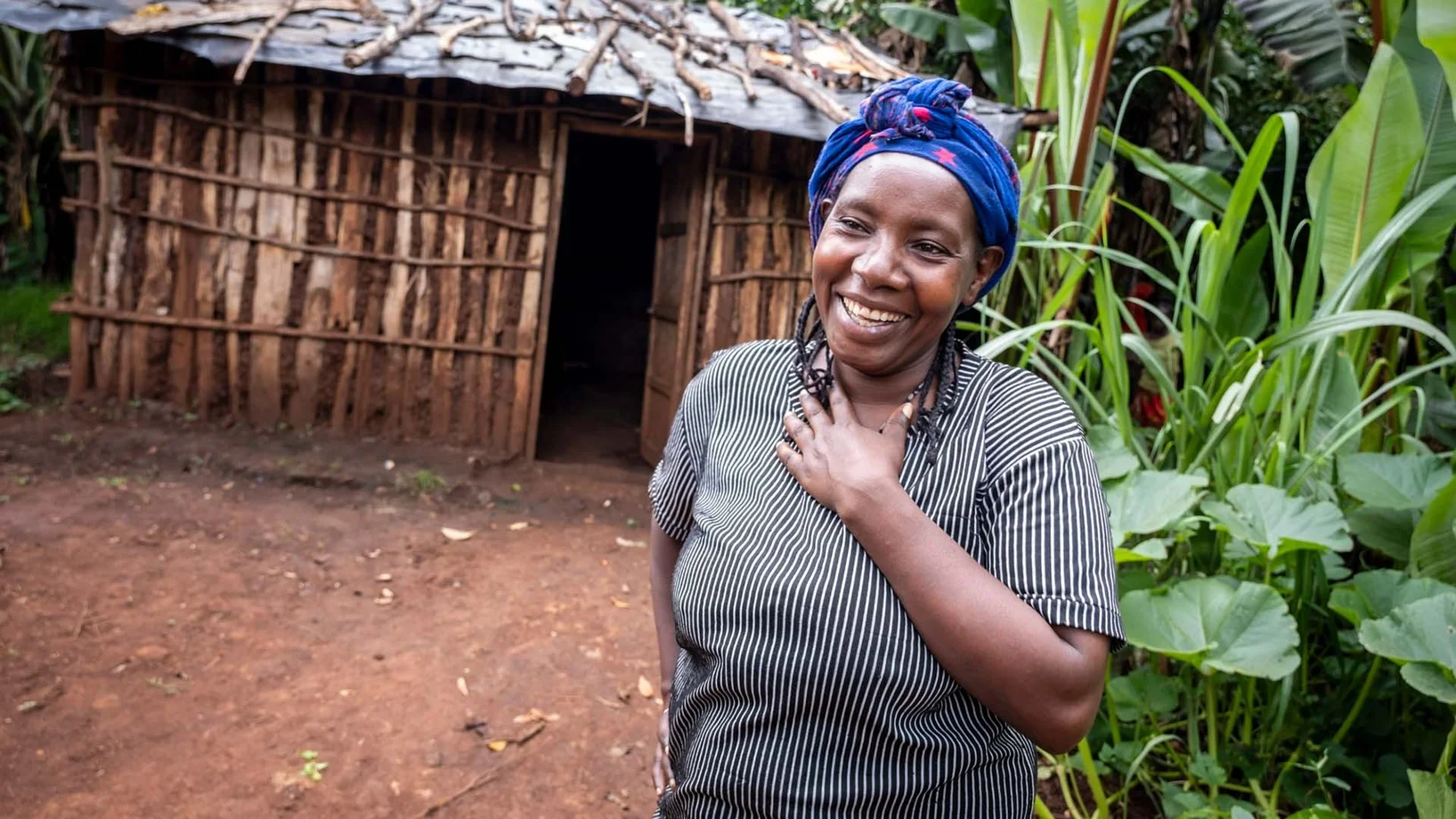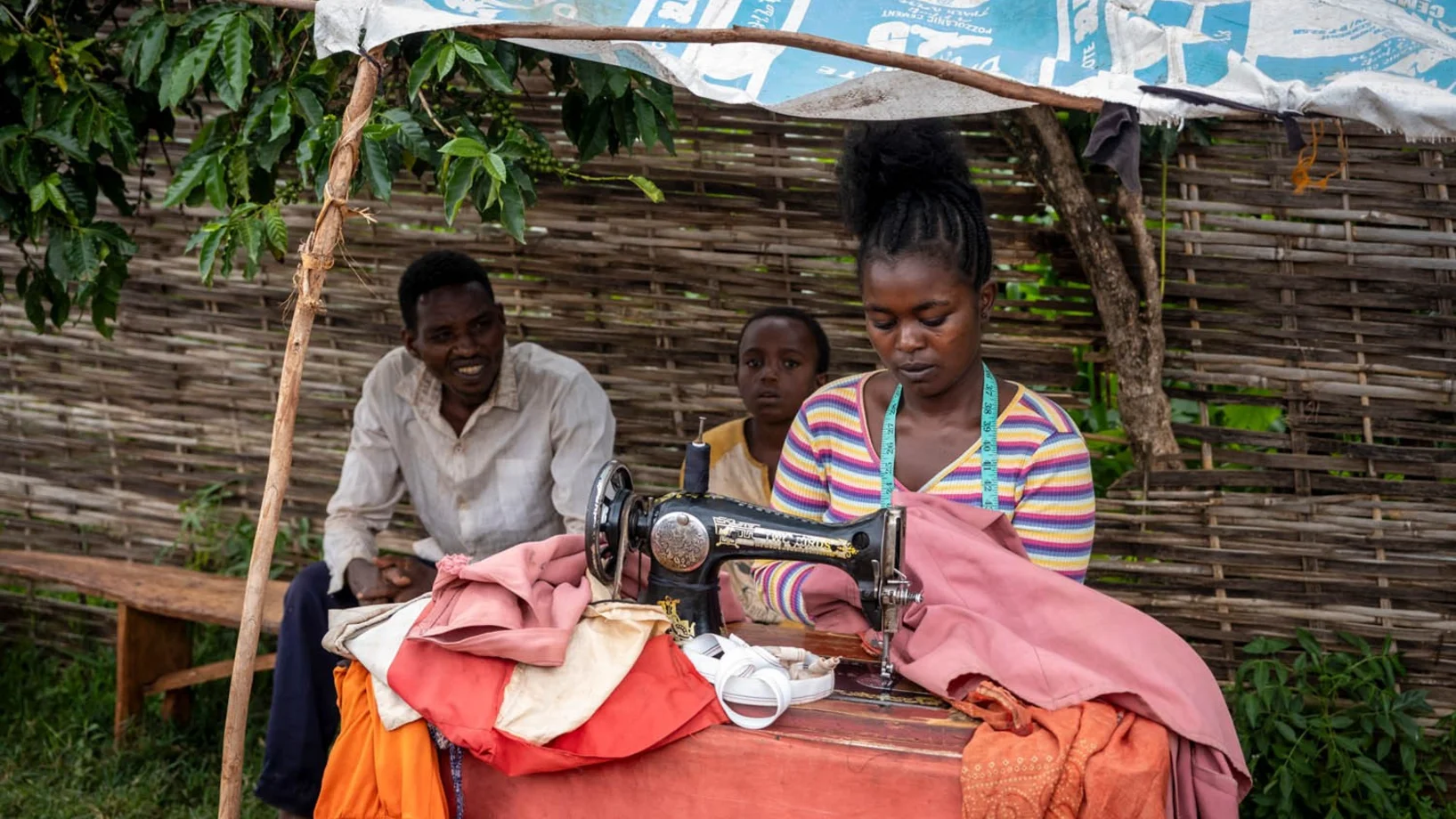"Like father, like son", goes the saying. It is not true for Petros Yonte. His father wants many grandsons. But for Petros, the well-being of his young daughters is crucial.
The old man wears no shoes. Yonte Dako walks barefoot along the paths of red clay and sharp stones in his home village of Kelaltu. He is plagued by a thought. His son Petros' wife has given birth for the third time. And it's a girl again! Petros now has three daughters. "A grandson would be nice!" says Yonte Dako. Or even two or three. But his son has told him he doesn't want any more children. "I don't understand it," muses the senior citizen, whose wife bore him eight children, two of whom died before they reached school age. "That's how it used to be: the more children God gives a man, the more respect he commands in the village."
But the boys know everything better! "Three children are enough," says his son. "In the neighborhood, I see that many families can't feed their children. And when they grow up, they don't have any resources to build something for themselves." Petros and his wife attended a training course run by Menschen für Menschen to find out about family planning. The couple opted for long-term contraception: The hormone stick is available free of charge at the local health center and is implanted under the skin of the upper arm by a nurse. "We want to feed the children well. They should go to school every day and learn," explains Petros. "I also want to continue investing in building up my livelihood. That means: I can't have any more children."
An astonishing rise in a short space of time. After the ninth grade, Petros had to drop out of school. His father said there was no money for secondary school, he had to earn money now. But how? There are hardly any manufacturing businesses in the entire district, only very poorly paid unskilled agricultural work. So Petros turned to trade: he became a freelancer for a livestock trader, looked for goats and sheep at the weekly markets, negotiated the price with the farmers and received a - far too small - commission from the trader. It's the same in Ethiopia as everywhere else: without capital, no one can get off the ground. But capital for his own goat trade was utopian for Petros. The small commissions went towards food for the family. He couldn't get a loan from banks: Petros had no prospect of change.
But then Menschen für Menschen set up a cooperative savings group in the village and provided it with start-up capital. Petros presented his business plan and the members of the group granted him a microloan for the equivalent of 300 francs. With this sum, Petros was able to buy eight goats at the local markets - and after a short time sell them on at other markets with a small margin. However, as not every day was market day, Petros had a villager show him how to cut hair, bought a hair clipper, leased a small area at the local market - and diversified his income as a hairdresser.

300 francs - Petros didn't need more than this small initial spark for steady growth. The breakthrough came after two years. Another trader saw how skillfully Petros traded in small livestock. The colleague suggested that Petros hire a truck on a regular basis and export goats and sheep to the capital, where prices are much better.
"We send a large truck to Addis Ababa every week. The loading area fits 110 animals," says Petros, explaining the business model. "I contribute half of that." He goes to various markets in the area throughout the week to buy small livestock from the farmers. He has already hired people to look after the animals until the truck picks them up every Thursday. After deducting all the costs for the driver, truck and feed, Petros is left with a profit of 175 francs per week - more than half the original loan amount with which he was able to start his business.

Petros proudly reports on his successes. He has bought a young cow with some of the profits. His girls can now drink as much milk as they want every day. He has bought a small field, "Only a quarter of a hectare, but it's a good start," says Petros. He plants sugar beet and peperoncini next to coffee bushes.
The visit ends with a family photo. Petros' father disappears into his hut. He returns with leather shoes on his feet, a gift from Petros. He only wears them for special occasions, such as going to church on Sundays. They are too good for everyday wear. His father sticks to his old way of thinking. Shoes must be spared and women should have lots of children: "We always had big families!"
Petros listens to everything without argument. You don't contradict your parents, that's the custom in rural Ethiopia. "But I made my own decision," says Petros to the visitors from Switzerland. "I will build a good future for my three daughters."
WHY WE HELPED
Most families in the Gelana and Abaya districts suffered severe food shortages. For nine years, until the end of 2024, our aim was to increase harvests and incomes.
WHAT WE DID
- Promoting agriculture with inputs and training
- Income and marketing opportunities were created
- Building savings groups and cooperativesT
- Tree planting to protect the landscape
- Family planning education
WHAT WE ACHIEVED
Thousands of particularly poor families were able to improve their lives. Around 150,000 people benefited from the project.












